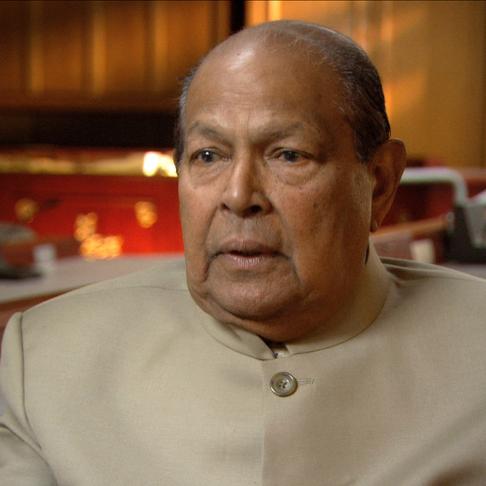
W.J. Astore
In my latest article for TomDispatch.com, I detail how the U.S. military is out everywhere but winning nowhere. What I mean by not winning is the military’s failure to end wars on terms remotely favorable to national security and the interests of democracy. I hesitate to be a cynic, but perpetual war does mean perpetual high “defense” budgets and prolonged and prodigious power for generals (and retired generals). Peace would mean smaller defense budgets and far less influence for these men.
What chance of peace with President Trump in charge surrounded by the generals of all these losing wars? Indeed, generals continue to speak of generational wars, so much so that I’m tempted to make a play on words: generational wars generated by generals. It’s not entirely fair, nor is it entirely unfair.
Anyway, here’s an excerpt from my article. You can read it in its entirety at TomDispatch.com.
When it comes to the “world’s greatest military,” the news has been shocking. Two fast US Navy ships colliding with slow-moving commercial vessels with tragic loss of life. An Air Force that has been in the air continuously for years and yet doesn’t have enough pilots to fly its combat jets. Ground troops who find themselves fighting “rebels” in Syria previously armed and trained by the CIA. Already overstretched Special Operations forces facing growing demands as their rates of mental distress and suicide rise. Proxy armies in Iraq and Afghanistan that are unreliable, often delivering American-provided weaponry to black markets and into the hands of various enemies. All of this and more coming at a time when defense spending is once again soaring and the national security state is awash in funds to the tune of nearly a trillion dollars a year.
What gives? Why are highly maneuverable and sophisticated naval ships colliding with lumbering cargo vessels? Why is an Air Force that exists to fly and fight short 1,200 pilots? Why are US Special Operations forces deployed everywhere and winning nowhere? Why, in short, is the US military fighting itself — and losing?
It’s the Ops Tempo, Stupid
After 16 years of a never-ending, ever-spreading global war on terror, alarms are going off in Asia from the Koreas and Afghanistan to the Philippines, while across the Greater Middle East and Africa the globe’s “last superpower” is in a never-ending set of conflicts with a range of minor enemies few can even keep straight. As a result, America’s can-do military, committed piecemeal to a bewildering array of missions, has increasingly become a can’t-do one.
Too few ships are being deployed for too long. Too few pilots are being worn out by incessant patrols and mushrooming drone and bombing missions. Special Operations forces (the “commandos of everywhere,” as Nick Turse calls them) are being deployed to far too many countries — more than two-thirds of the nations on the planet already this year — and are involved in conflicts that hold little promise of ending on terms favorable to Washington. Meanwhile, insiders like retired Gen. David Petraeus speak calmly about “generational struggles” that will essentially never end. To paraphrase an old slogan from ABC’s Wide World of Sports, as the US military spans the globe, it’s regularly experiencing the agony of defeat rather than the thrill of victory.
To President Donald Trump (and so many other politicians in Washington), this unsavory reality suggests an obvious solution: boost military funding; build more navy ships; train more pilots and give them more incentive pay to stay in the military; rely more on drones and other technological “force multipliers” to compensate for tired troops; cajole allies like the Germans and Japanese to spend more on their militaries; and pressure proxy armies like the Iraqi and Afghan security forces to cut corruption and improve combat performance.
One option — the most logical — is never seriously considered in Washington: to make deep cuts in the military’s operational tempo by decreasing defense spending and downsizing the global mission, by bringing troops home and keeping them there. This is not an isolationist plea. The United States certainly faces challenges, notably from Russia (still a major nuclear power) and China (a global economic power bolstering its regional militarily strength). North Korea is, as ever, posturing with missile and nuclear tests in provocative ways. Terrorist organizations strive to destabilize American allies and cause trouble even in “the homeland.”
Such challenges require vigilance. What they don’t require is more ships in the sea lanes, pilots in the air and boots on the ground. Indeed, 16 years after the 9/11 attacks it should be obvious that more of the same is likely to produce yet more of what we’ve grown all too accustomed to: increasing instability across significant swaths of the planet, as well as the rise of new terror groups or new iterations of older ones, which means yet more opportunities for failed US military interventions …
The Greatest Self-Defeating Force in History?
Incessant warfare represents the end of democracy. I didn’t say that, James Madison did.
I firmly believe, though, in words borrowed from President Dwight D. Eisenhower, that “only Americans can hurt America.” So how can we lessen the hurt? By beginning to rein in the military. A standing military exists — or rather should exist — to support and defend the Constitution and our country against immediate threats to our survival. Endless attacks against inchoate foes in the backlands of the planet hardly promote that mission. Indeed, the more such attacks wear on the military, the more they imperil national security.
A friend of mine, a captain in the Air Force, once quipped to me: you study long, you study wrong. It’s a sentiment that’s especially cutting when applied to war: you wage war long, you wage it wrong. Yet as debilitating as they may be to militaries, long wars are even more devastating to democracies. The longer our military wages war, the more our country is militarized, shedding its democratic values and ideals.
Back in the Cold War era, the regions in which the US military is now slogging it out were once largely considered “the shadows” where John le Carré-style secret agents from the two superpowers matched wits in a set of shadowy conflicts. Post-9/11, “taking the gloves off” and seeking knockout blows, the US military entered those same shadows in a big way and there, not surprisingly, it often couldn’t sort friend from foe.
A new strategy for America should involve getting out of those shadowy regions of no-win war. Instead, an expanding US military establishment continues to compound the strategic mistakes of the last 16 years. Seeking to dominate everywhere but winning decisively nowhere, it may yet go down as the greatest self-defeating force in history.



